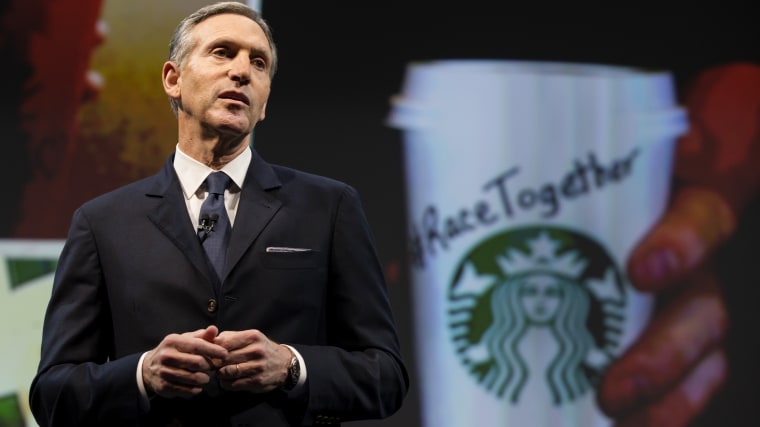I'm deliberately trying to steer clear of much of the daily uproar over Howard Schultz and his odd presidential ambitions, but there was something the former Starbucks CEO said yesterday that's worth considering in a little more detail.
Responding to Sen. Elizabeth Warren (D-Mass.) yesterday, Schultz wrote, "People need real opportunities to help themselves, not unrealistic policies and promises. Genuine opportunities, like the ones I had, which helped me leave the housing projects of Brooklyn and realize my dreams."
Schultz was born in 1953, so when he reflects on the opportunities available to him while growing up, we have a sense of what time period he's referring to. In fact, it reminded me of a piece Michael Tomasky wrote several years ago about some conservatives' romanticized vision of the United States in the 1950s.
In ['50s-era America], the top marginal tax rate on wealthy earners was 90%. It had gone up there during the war, and five, 10, 15 years after armistice, no sizable group, Democrat or Republican, felt any strong urge to lower it.In ['50s-era America], private-sector union membership was around or above 30%. Today's figure is 7%. The right to form a union was broadly accepted. Outside of a few small turbulent pockets, there was no such thing as today's union-busting law firms hired by management to go into workplaces and intimidate workers.
CNBC's John Harwood added yesterday that the year Schultz was born, the top marginal U.S. income tax rate was 92%. That's a rate Schultz apparently now considers "un-American."
The former Starbucks CEO looks back with fondness at the "opportunities" that were available in the America that he grew up in, but he's referring to an era in which taxes on the wealthy were extremely high and union membership was strong. More than a half-century later, as he prepares for a possible White House bid, Schultz is opposed to higher taxes on the wealthy, and his record on supporting unions is poor.
How does Schultz reconcile the contradiction? At least for now, he doesn't.
